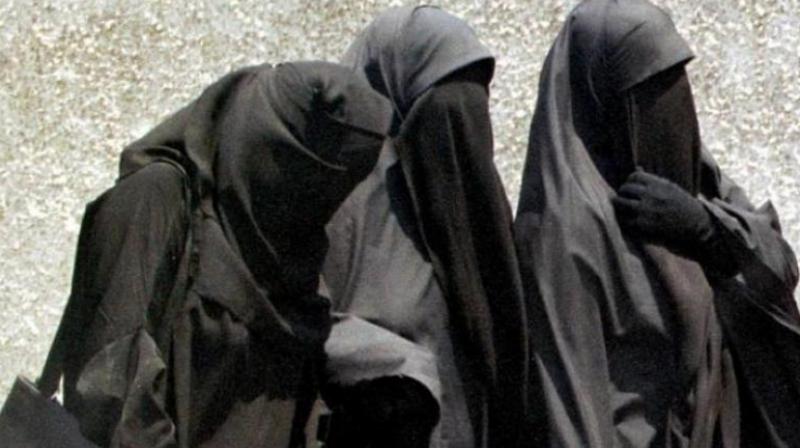7-judge SC bench to hear triple talaq, polygamy issues today
Several Muslim women have approached the judiciary and the apex court is presently hearing three petitions against triple talaq.

New Delhi: The Supreme Court will express its views on the Constitutional legitimacy of triple talaq and polygamy in the Muslim community, as the hearing on the matter involving women petitioners, religious organisations and the Centre is set to be heard today.
Chief Justice of India TS Thakur, who also leads the bench that has been hearing petitions on the validity of triple talaq and polygamy, will head the seven-judge bench.
Several Muslim women have approached the judiciary and the apex court is presently hearing three petitions against triple talaq.
Muslims organizations, however, perceive this development as an attempt to meddle with their religious practices and are boycotting the process.
Earlier the Centre had filed an affidavit in the Supreme Court saying that triple talaq is not an essential religious practice in Islam.
"Gender equality and dignity of women are non-negotiable, overarching constitutional values and can brook no compromise," the government said in an affidavit filed in the top court.
The Muslim law board claimed that triple talaq is a 'personal law', and hence, cannot be modified by the Centre.
The government countered the claim of the Muslim law board and said, "Practices of triple talaq, polygamy and nikah halala cannot be regarded as essential part of religion and hence get no protection under fundamental right to religion."
Defending the Centre's opposition to the triple talaq system, Union Minister Ravi Shankar Prasad asserted that in a secular nation like India, women cannot be allowed to suffer such arbitrary and derogatory systems.
Listing out the Centre's three-fold stand which was given in response to the Supreme Court over certain petitions filed by Muslim women, Prasad told ANI that firstly, the issue concerns only and only about the dignity, non-discrimination of women, respect to them and gender justice and India being a secular country governed by a constitution, the abiding values of its constitution about gender justice, dignity of women needs to be respected.
"The second is, India is a secular country. Secularism is a basic structure of the Constitution. Can we, where we have got a secular India, allow the women to suffer a kind of a system which is derogatory and arbitrary?" he said.
Illuminating the third point, the union minister mentioned that in more than a dozen Islamic countries, ranging from Bangladesh to Syria and even Pakistan, matrimonial laws have been regulated by law, including triple talaq.
In August, the All India Muslim Personal Law Board (AIMPLB), in its reply to the petitions, had defended the validity of triple talaq, saying that if the practice is discontinued, a man could murder or burn his wife alive to get rid of her.
"If there develops serious discord between the couple, and the husband does not at all want to live with her, the legal compulsions of time-consuming separation proceedings and expenses may deter him from taking the legal course. In such instances, he may resort to illegal, criminal ways of murdering or burning her alive," the AIMPLB's affidavit had stated.

